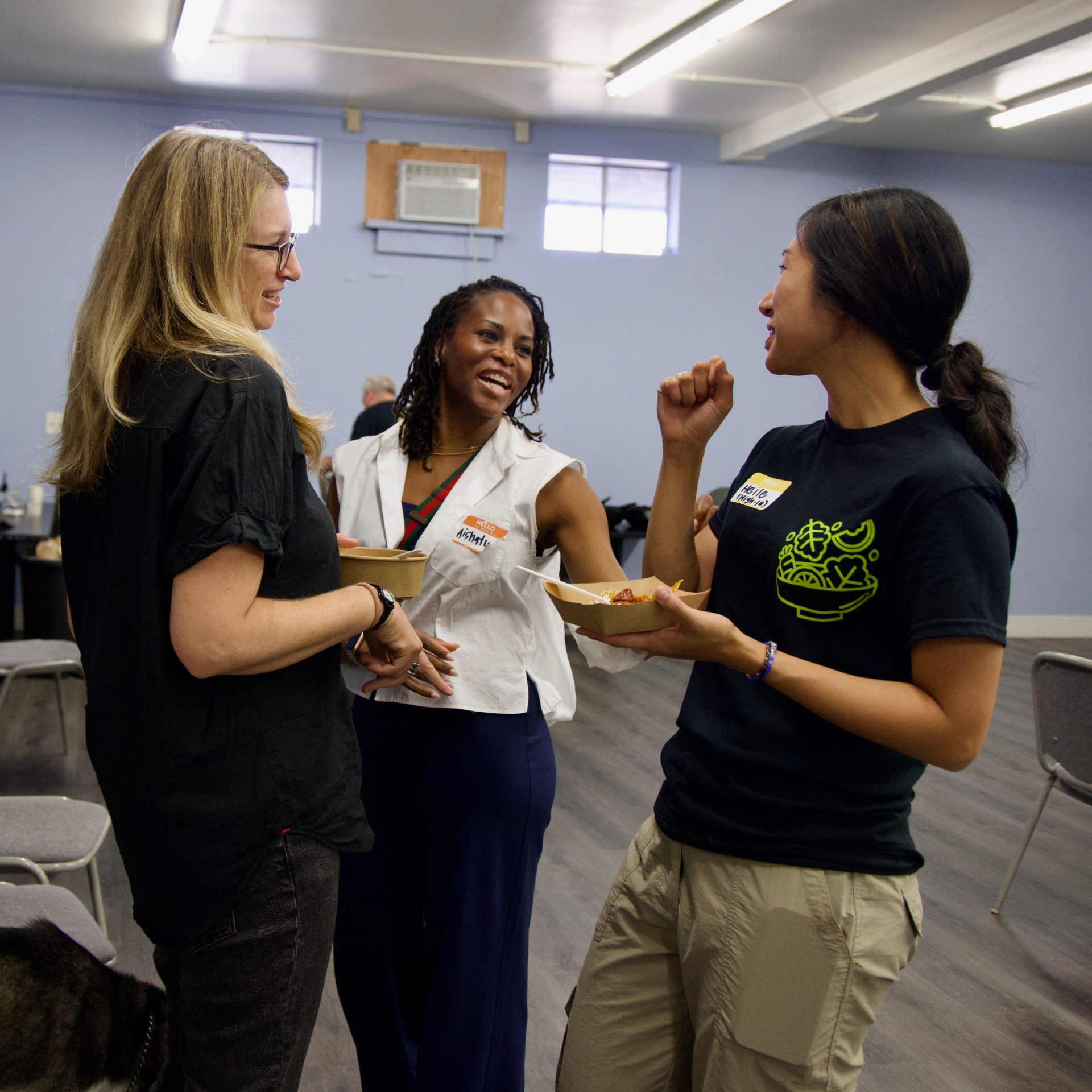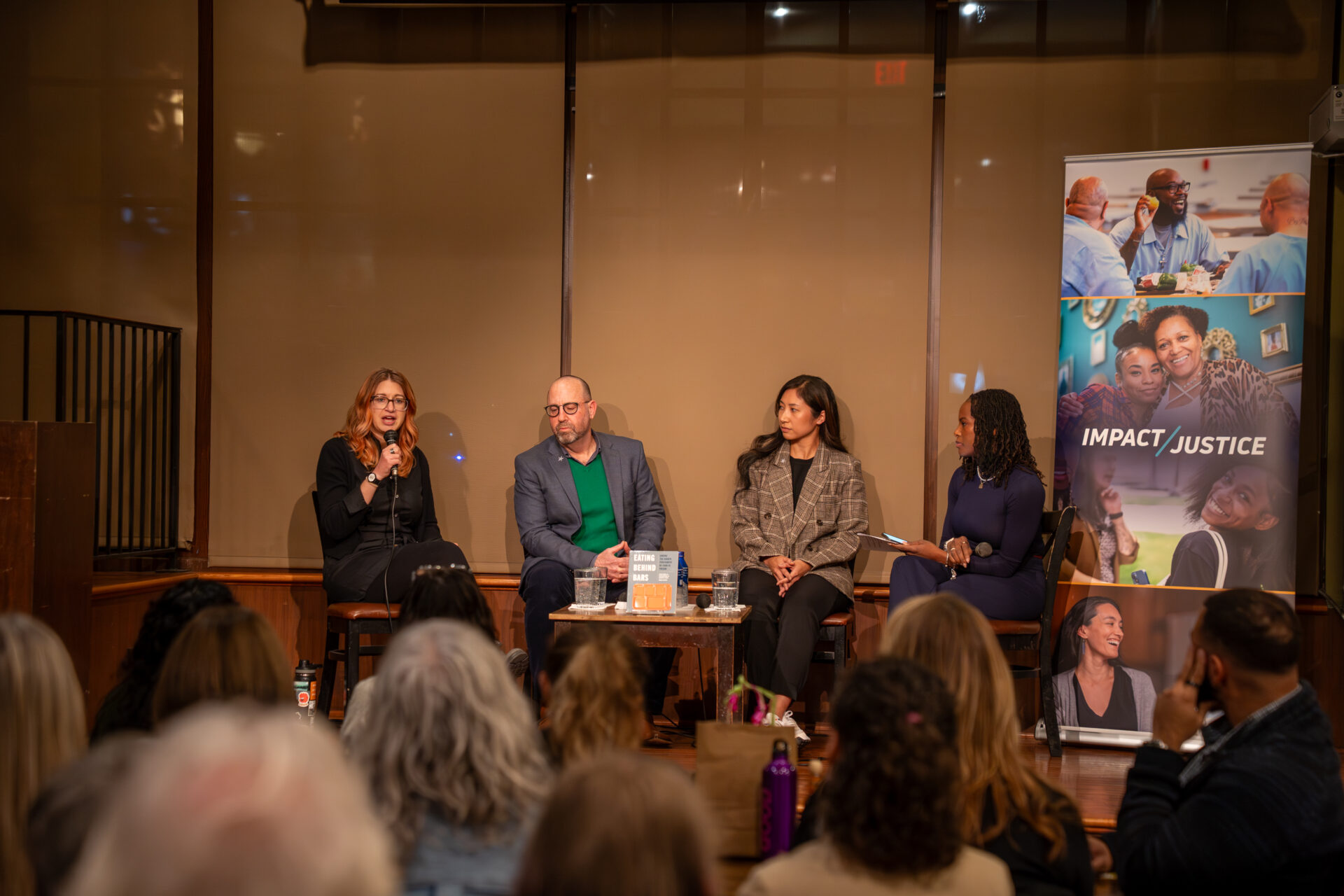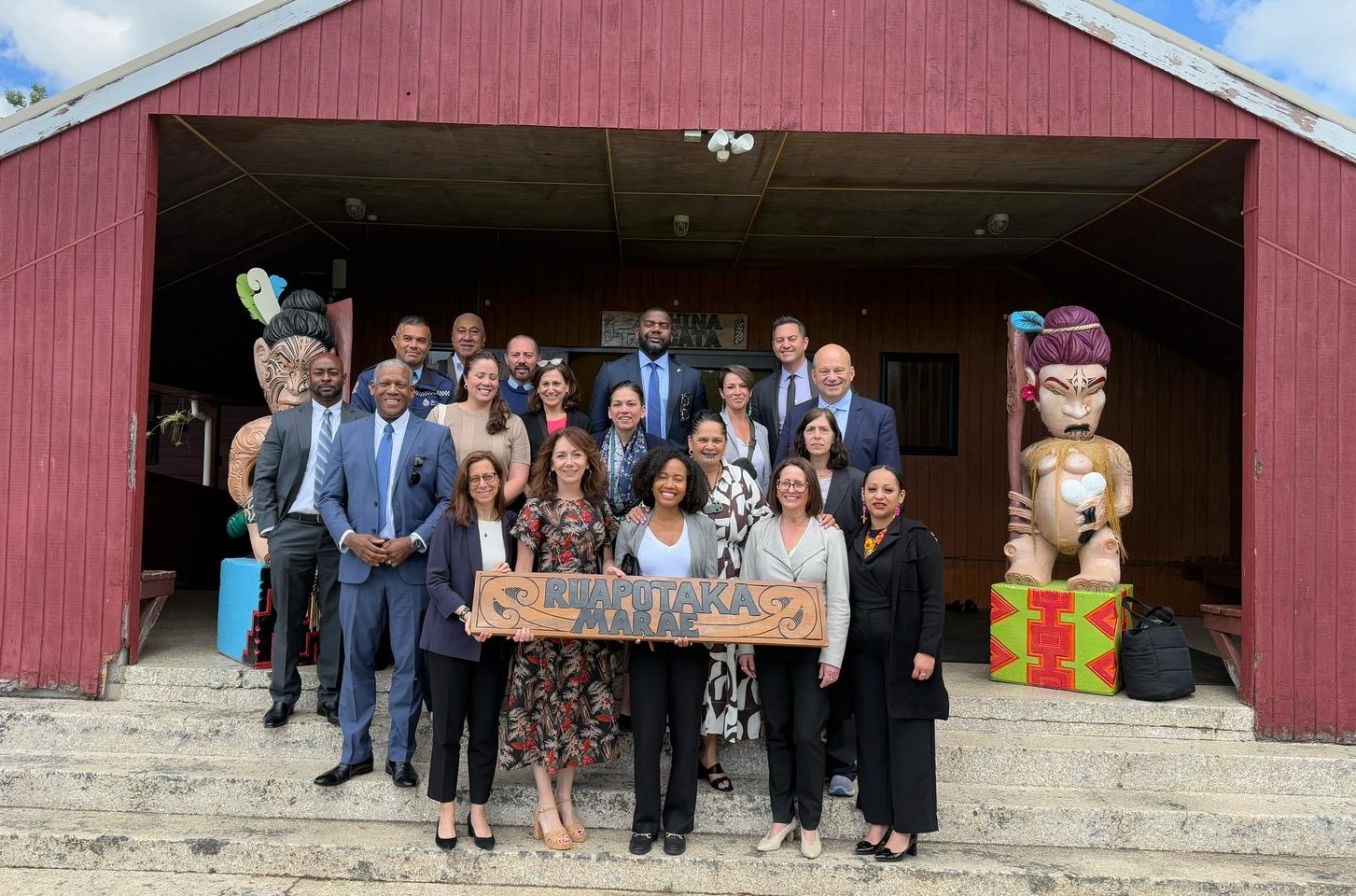Earlier this summer, our team traveled more than 1,000 miles across California to see firsthand how our Harvest of the Month (HOTM) program is impacting people on the ground at prisons around the state. While each visit was a reminder of the harsh realities of food in prison, we also saw the extraordinary potential for transformation when fresh, dignified food is made available in these environments.
Harvest of the Month recently brought thousands of fresh, California-grown lemons into prisons across the state. Lemons: so ordinary to most of us on the outside, but nonexistent in prison (one food service manager we spoke with said it was the first time in his 27-year career that he had ever served one). As our visits revealed, these little fruits sparked joy and creativity behind bars in ways I never could have predicted. Lemons garnished roasted chicken and fish tacos served in the chow hall. Back in the housing units, additional lemons were added to canteen creations, brightening ceviche (made with tuna from a pouch), topping pho, and sprinkling Hot Cheetos with a taste of nostalgia that reminded many of beloved street vendors. One resident’s cellmate dried the peel to flavor water for weeks. The ingenuity was striking, and deeply moving. And when we told a resident that strawberries were coming next, his eyes filled with tears. “I haven’t had a strawberry in 17 years,” he said. “Thank you.”
When we told a[n incarcerated] resident that strawberries were coming next, his eyes filled with tears. ‘I haven’t had a strawberry in 17 years,’ he said. ‘Thank you.’
But the most powerful part of our trip wasn’t just seeing (and celebrating) food ingenuity behind bars — it was experiencing the dialogue that Harvest of the Month is fostering at prisons across the state.
At each prison we visited, our team had the chance to meet with incarcerated leaders, chat with residents in the chow halls and on the yard, and facilitate conversations with food service staff. These conversations are a rare space for incarcerated people to share how they prefer their food served — and for staff to really listen. Dialogue has led to small but significant shifts, like serving HOTM avocados whole instead of as pre-mashed guacamole. These choices may sound minor, but they offer something that’s often in short supply inside: personal agency and respect.
Across California, seeds of change are being planted, sometimes literally. At some sites, residents proudly showed us the small gardens they’re growing — on their own initiative — to share herbs and produce with others in the yard. Prison staff also shared that HOTM has given them permission to get creative and experiment. Some have started making from-scratch dishes like broccoli-cheddar soup, an almost unthinkable offering in a system characterized by overprocessed, tasteless meal items.
There is so much more to be done to ensure that people in prison have access to food that is fresh, nutritious, and dignified. But change is happening—in the kitchens, the chow halls, and even the yards of California’s prisons. And it’s happening because of creative partnerships that call everyone into our work to build something better.
Change is happening…because of creative partnerships that call everyone into our work to build something better.
On our last night of the trip, we stopped at a local sushi place for dinner after a long day in the field. At the table next to us, a group of young men raised glasses in celebration. One made a toast, and we realized: it was a welcome home dinner for someone just released from prison. We didn’t interrupt; instead, we sat quietly with the emotion of that moment. It was a poignant reminder of what this work is all about. In prison and outside of it, food isn’t just nourishment: it is memory, healing, dignity, and a way to welcome people home.




